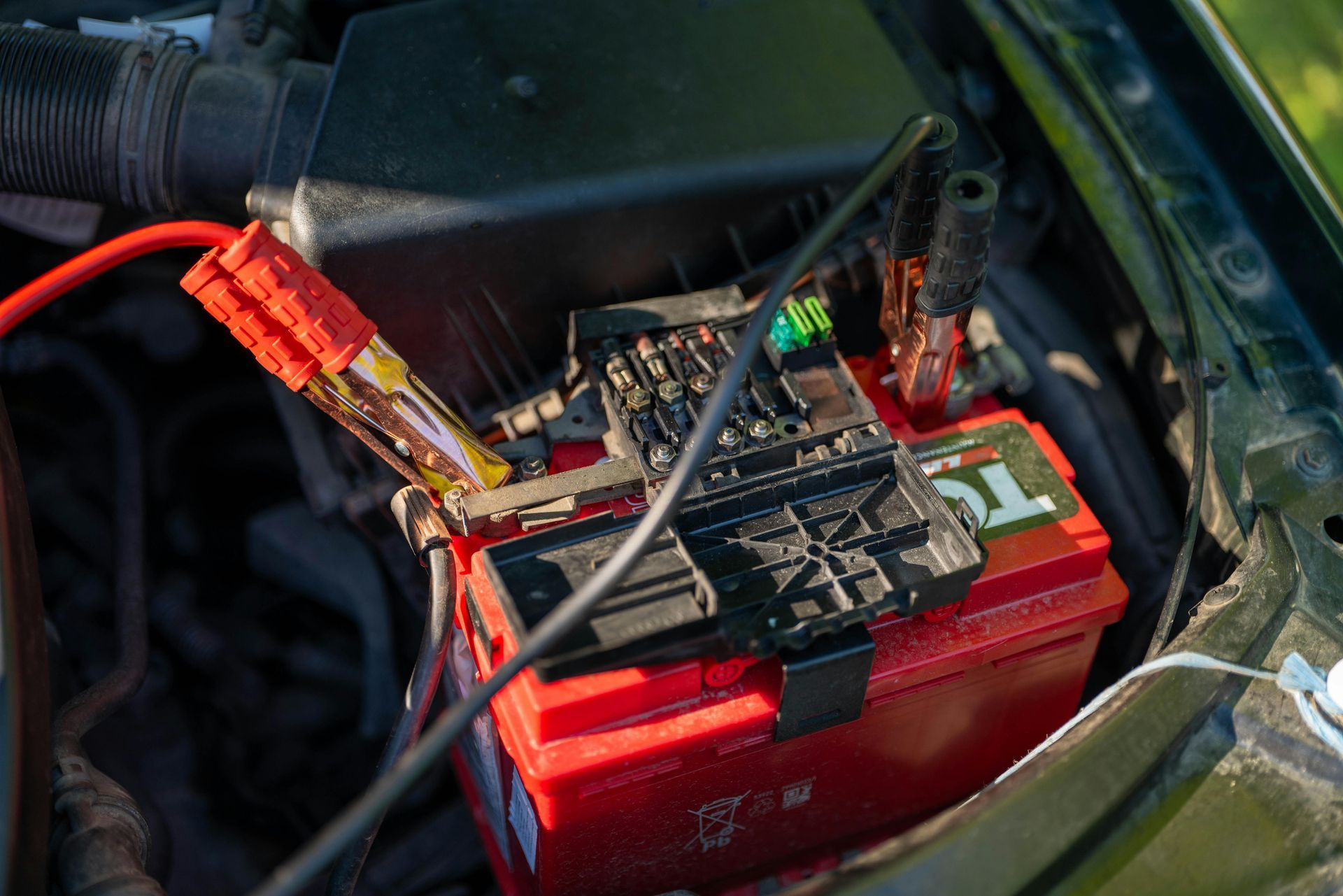Who Can Repair an Electric Vehicle? A Guide to EV Servicing
Auto Shops Located in: Chapel Hill, Durham, Taleigh, Apex, and Cary North Carolina

As electric vehicles become more popular, searches about servicing them are becoming more and more common. Cars are complicated machines, and it can be hard to dedicate the time to learning about the ins and outs of your vehicle, so it’s natural to have a lot of questions. When searching the internet for information about servicing electric vehicles, some of the most common questions you might come across may be about cost, difficulty of repair, types of repairs, and who can even repair an electric vehicle in the first place.
In this article, we’ll answer all of the above questions to help electric vehicle owners and prospective buyers get a better sense of what goes into electric vehicle repairs.
Is Repairing Electric Cars More Expensive?
Repairing an electric car is quite different from a classic gas-powered vehicle. Electric vehicles tend to be simpler mechanically than cars with an internal combustion engine (ICE), as they don’t have as many moving parts that need maintenance and observation.
But this simplicity can sometimes come at a cost. EV cars are usually heavier than vehicles with gas-powered engines, and because of this, they tend to cause more damage to other vehicles when involved in collisions. Though they often cause more damage to other vehicles, they’re not immune from damage. If they’re damaged in a collision, the costs can add up quickly due to specialized parts that need to be purchased for electric vehicles. Because electric vehicles aren’t as popular as cars with ICE engines, the parts are less readily available, which drives up the cost.
That being said, general maintenance for an electric vehicle tends to be cheaper than a gas-powered car. Since EV owners don’t have to worry about maintaining things like oil, the day-to-day fixes and annual service checks will potentially end up costing you less.
How Hard Is It to Repair an Electric Car? Are EVs More Difficult to Repair?
While basic maintenance tasks, like tire rotation or getting your alignment checked, are similar in EVs and ICE cars, some EV fixes can be more complicated. Electric cars have more niche parts than ICE cars, such as electric drivetrains, control systems, and the batteries that power the vehicles themselves. Due to the specificity of their parts, more advanced diagnostic tools and equipment are usually needed to perform more in-depth repairs. These tools will require the mechanic to have undergone specialized training to operate, which may also drive up labor costs.
It all depends on the fix, though. For example, a problem with a combustion car’s transmission will be a more complicated fix than if you just have some bad battery cables in your EV. Since combustion and electric vehicle repairs vary in complexity, there’s no clear answer about which one is harder. However, electric vehicles utilize more unique parts that some mechanics may not be trained to repair or replace, so it’s best practice to always go to a mechanic who has been properly trained to repair EVs.
What Kind of Maintenance Do Electric Cars Need?
While EV cars may require less maintenance than traditional gasoline-powered cars, they still require regular checkups. Below, you can find a few things to stay on top of to keep your electric vehicle running smoothly:
- Battery Health: The battery in an EV vehicle is what makes everything go, so you’ll want to keep a close eye to make sure that it is functioning properly. One way to ensure your battery is working properly is to compare the projected mileage range on your display to the miles covered on your trip. If there is a difference in the numbers, you should probably have a mechanic give it a look.
- Braking System: EV cars use a regenerative braking system that takes the power that would normally be used in a classic braking setup and siphons it back into your car’s battery, conserving energy. Much like brakes in ICE cars, regular checkups from trained mechanics on your EV’s brakes will save you money in the long run if you catch problems early.
- Cooling Systems & HVAC: While they don’t have a gasoline-powered engine, EV cars still require coolant. Coolant is easy to check yourself, so be sure to look at your levels periodically and refill as needed. The heating and cooling systems in your car will also require regular service to ensure they’re working as they should be.
- Software Updates: Keeping up to date on your vehicle’s firmware and software is essential to your electric vehicle functioning efficiently. Make sure you’re following the manufacturer’s instructions on regular updates. If you’re having difficulty figuring out how to download the updates, take your car to a qualified mechanic so they can help you out.
Who Can Repair EV Vehicles? Can a Mechanic Repair an EV?
Not every mechanic will be qualified to work on an electric vehicle. When searching for a shop to take your EV to, be sure to do your research and make sure that their mechanics have the qualifications to service electric-powered cars. Since EVs require more specialized repairs, it may take a little longer to find a mechanic who can help you out, but it’s worth taking a little more time to find a properly certified mechanic to ensure your EV is properly maintained and repaired.
Choose Chapel Hill Tire for All Your Electric Vehicle Repairs
If you need electric vehicle repairs near Raleigh, Durham, Chapel Hill, or the surrounding areas, Chapel Hill Tire has you covered. Our team of technicians is trained to service all types of vehicles and will be happy to provide any repairs or maintenance you might need. We’re also proud to offer several promotions to keep your costs as low as possible.
Learn more about our hybrid and electric vehicle services today. If you need a repair for your gas or electric vehicle, please make an appointment at one of our 11 Triangle area locations.















